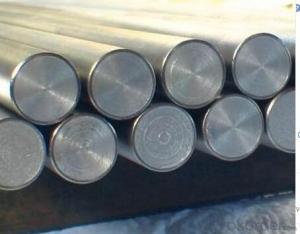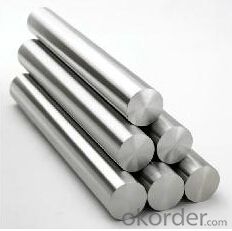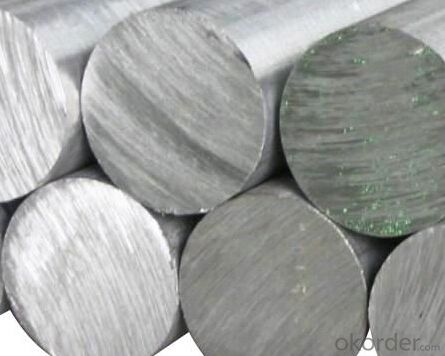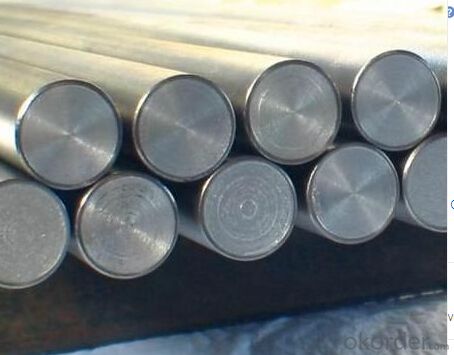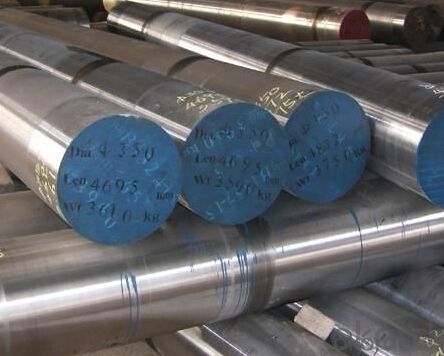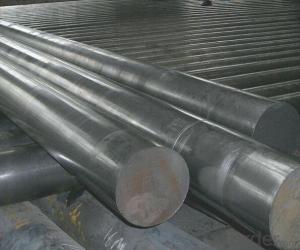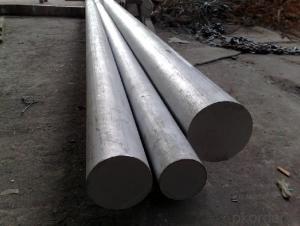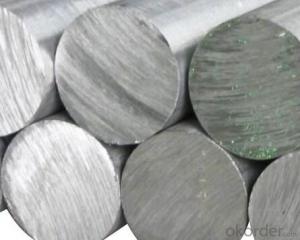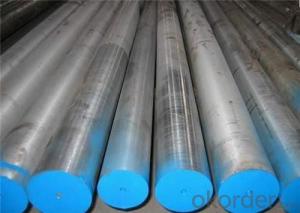Grade SAE51200/ GCr15 / 100CR6 Bearing Steel
- Loading Port:
- Tianjin
- Payment Terms:
- TT or LC
- Min Order Qty:
- 500 m.t.
- Supply Capability:
- 100000 m.t./month
OKorder Service Pledge
OKorder Financial Service
You Might Also Like
Product Description:
OKorder is offering Grade SAE51200/ GCr15 / 100CR6 Bearing Steel at great prices with worldwide shipping. Our supplier is a world-class manufacturer of steel, with our products utilized the world over. OKorder annually supplies products to European, North American and Asian markets. We provide quotations within 24 hours of receiving an inquiry and guarantee competitive prices.
Product Applications:
Grade SAE51200/ GCr15 / 100CR6 Bearing Steel are ideal for structural applications and are widely used in the construction of buildings and bridges, and the manufacturing, petrochemical, and transportation industries.
Product Advantages:
OKorder's Grade SAE51200/ GCr15 / 100CR6 Bearing Steel are durable, strong, and resist corrosion.
Main Product Features:
· Premium quality
· Prompt delivery & seaworthy packing (30 days after receiving deposit)
· Corrosion resistance
· Can be recycled and reused
· Mill test certification
· Professional Service
· Competitive pricing
Product Specifications:
1. Dimensional sizes: Thickness: 14~100mm.Length:3000~5800mm,Diameter :14-500mm
2.Chemical composition:
C | Si | Mn | Cr | Ni | Cu |
Equal or less than | |||||
0.95-1.05 | 0.15-0.35 | 0.20-0.40 | Cr:1.30-1.65 | 0.30 | 0.25 |
3. Grade: SAE51200/ GCr15 / 100cr6
4. Heat Treatment:
Soft annealing: heat to 680-720°C, cool slowly.
Hardness after annealing: Max. 241 HB
Hardening: 820 - 850 °C
Normalizing temperature: 840-880°C
Tempering: 540-680°C
5. Surface requirements: Black, grinding, bright, polish
6. Characters:
1) Comprehensive properties
2) Good performance in cutting and processing after spheroids annealing
3) High hardness and homogenization after quenching and tempering
4) High abrasive resistance and fatigue resistance
7. Payment terms: T/T or L/C at sight
Usage & Applications of Bearing Steel GCr15
Our products have been used in all kinds of areas, such as aviation, aerospace, navigation, nuclear, energy, chemical industry, electronic information, petrochemical, automotive, instrument and meter, Communication ,transportation, and medical instruments, etc. Bearing ring,steel rolling mill ,machinery, 100Cr6 bearing steel ball is widely used in high-speed and low-noise bearing, bicycle, motorcycle, automobile, bags, electronics.
Packaging & Delivery of Bearing Steel GCr15
Mark: Heat No. will be cold stamped and Steel grade, diameter (mm), length (mm), and the manufacturer LOGO and weight (kg) is painted.
Standard seaworthy packing or as customer required
Delivery time: Within 30 days after order is confirmed.
FAQ:
Q1: Why buy Materials & Equipment from OKorder.com?
A1: All products offered byOKorder.com are carefully selected from China's most reliable manufacturing enterprises. Through its ISO certifications, OKorder.com adheres to the highest standards and a commitment to supply chain safety and customer satisfaction.
Q2: How do we guarantee the quality of our products?
A2: We have established an advanced quality management system which conducts strict quality tests at every step, from raw materials to the final product. At the same time, we provide extensive follow-up service assurances as required.
Q3: How soon can we receive the product after purchase?
A3: Within three days of placing an order, we will begin production. The specific shipping date is dependent upon international and government factors, but is typically 7 to 10 workdays.
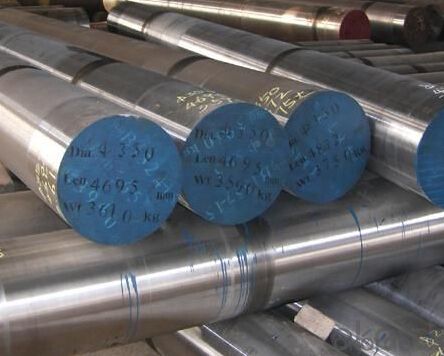
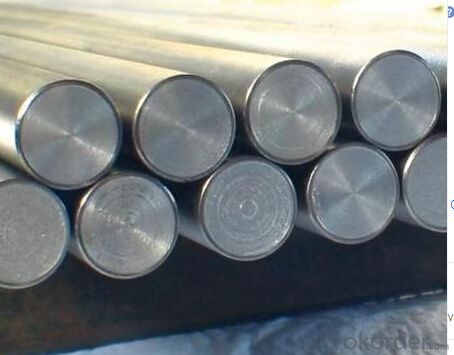
- Q: Can special steel be used in the production of knives and blades?
- Yes, special steel can be used in the production of knives and blades. Special steel, such as stainless steel or high carbon steel, offers excellent hardness, corrosion resistance, and edge retention properties, making it suitable for manufacturing high-quality and durable knives and blades.
- Q: What are the main characteristics of electrical steel forgings?
- The main characteristics of electrical steel forgings include high magnetic permeability, low core loss, and high electrical resistivity. These properties make electrical steel forgings ideal for applications in electrical transformers, motors, and generators, where efficient magnetic performance and minimal energy loss are crucial. Additionally, electrical steel forgings are known for their excellent mechanical strength, thermal stability, and resistance to corrosion, making them durable and reliable in demanding environments.
- Q: Can special steel be used in the production of cutting tools?
- Yes, special steel can be and is commonly used in the production of cutting tools. Special steel, such as high-speed steel or tool steel, is specifically engineered to have superior hardness, toughness, and wear resistance, making it ideal for manufacturing various types of cutting tools like drills, saw blades, milling cutters, and lathe tools.
- Q: Is special steel resistant to chemical corrosion?
- Yes, special steel is generally resistant to chemical corrosion. Special steel, also known as stainless steel, is a type of alloy that contains a minimum of 10.5% chromium. The addition of chromium in the steel composition forms a passive oxide layer on the surface, which acts as a protective barrier against corrosion. This oxide layer is highly stable and prevents the steel from reacting with various chemicals and corrosive substances. Additionally, special steel may also contain other alloying elements such as nickel, molybdenum, and titanium, which further enhance its resistance to chemical corrosion. These elements increase the steel's ability to withstand exposure to acids, alkalis, salts, and other corrosive agents commonly found in industrial and environmental settings. However, it is important to note that the resistance of special steel to chemical corrosion may vary depending on the specific grade and composition. Different grades of stainless steel offer different levels of corrosion resistance, and it is crucial to select the appropriate grade based on the intended application and the specific corrosive environment. In summary, while special steel is generally resistant to chemical corrosion, the specific resistance can vary depending on the grade and composition. Therefore, it is essential to consider the specific requirements and consult with experts to choose the most suitable special steel for a particular application.
- Q: How does special steel contribute to the aerospace industry?
- Special steel contributes to the aerospace industry by offering several key benefits. Its high strength-to-weight ratio makes it ideal for constructing lightweight yet durable components, improving fuel efficiency and overall performance of aircraft. Additionally, its exceptional resistance to corrosion, heat, and extreme conditions ensures the longevity and reliability of aerospace structures. Special steel also enables the production of intricate and complex parts, enhancing the design flexibility and safety of aircraft.
- Q: Can special steel be used in cryogenic applications?
- Indeed, cryogenic applications can utilize special steel. In particular, austenitic stainless steels like 304 or 316 are frequently employed in cryogenic settings because of their remarkable mechanical attributes and ability to withstand low temperatures. These steels maintain their strength, toughness, and ductility even in exceedingly cold environments, rendering them suitable for cryogenic use. Furthermore, special steels also exhibit commendable resistance to corrosion and thermal expansion, which are crucial considerations in cryogenic applications. In summary, special steel alloys possess a distinctive combination of properties that make them highly suitable for withstanding and functioning in extremely frigid conditions.
- Q: How does special steel contribute to the defense and security industry?
- Special steel plays a crucial role in the defense and security industry by offering enhanced strength, durability, and resistance to extreme conditions. This type of steel is specifically designed to meet the unique demands of the industry, ensuring that military equipment and infrastructure can withstand the most challenging environments and threats. One significant contribution of special steel to the defense and security sector is in the manufacturing of armored vehicles and tanks. These vehicles require high-strength steel to protect military personnel from ballistic and explosive threats. Special steel provides the necessary toughness and resilience to withstand impacts, ensuring the safety of soldiers on the battlefield. Furthermore, special steel is also instrumental in the production of naval vessels and submarines. The maritime environment is highly corrosive, with saltwater and harsh weather conditions posing significant challenges. By utilizing special steel, naval ships can be constructed with superior corrosion resistance, extending their lifespan and reducing maintenance costs. In addition to its applications in vehicle and vessel manufacturing, special steel is vital for the production of military-grade weaponry and ammunition. The high strength and durability of this steel ensure that firearms, missiles, and other weapons can withstand extreme forces and function reliably in critical situations. This reliability is of utmost importance in the defense and security industry, where the failure of weapons could have severe consequences. Moreover, special steel also contributes to the construction of critical infrastructure for defense purposes. This includes structures such as military bases, bunkers, and communication towers. Special steel's ability to withstand extreme temperatures, high pressures, and other challenging conditions ensures the reliability and longevity of these structures, enhancing national security. In summary, special steel's unique properties, including high strength, durability, and resistance to extreme conditions, make it an essential component in the defense and security industry. By incorporating this material into military equipment, vehicles, weaponry, and infrastructure, defense organizations can ensure the safety, reliability, and effectiveness of their operations, ultimately contributing to national security.
- Q: How does special steel contribute to the chemical processing aftermarket industry?
- Special steel plays a crucial role in the chemical processing aftermarket industry by offering a wide range of benefits that enhance the overall efficiency and performance of chemical processing equipment. Firstly, special steel is renowned for its exceptional strength and durability, making it ideal for applications that involve high pressure, extreme temperatures, and corrosive environments. This durability ensures that the equipment can withstand the challenging conditions and operate reliably for extended periods, reducing the frequency of maintenance and replacement. Furthermore, special steel possesses excellent resistance to corrosion, oxidation, and chemical reactions, which are common challenges in the chemical processing industry. This resistance enables the equipment to handle a wide variety of chemicals without deteriorating or contaminating the process, thus ensuring the quality and safety of the end products. Additionally, special steel can withstand the formation of scale, deposits, and other contaminants that can hinder the efficiency of the equipment, thereby reducing the need for frequent cleaning and maintenance. Moreover, special steel offers superior mechanical properties such as toughness, hardness, and impact resistance, which are essential for handling and processing heavy loads and abrasive materials. This ensures that the equipment can withstand the demanding operational conditions and maintain its performance over time, resulting in enhanced productivity and reduced downtime. Another significant contribution of special steel to the chemical processing aftermarket industry is its versatility. It can be customized and tailored to meet specific requirements, allowing for the manufacturing of complex parts and components that are essential for various chemical processes. Special steel can be fabricated into different shapes and sizes, enabling the creation of intricate designs and structures that optimize the efficiency and effectiveness of the equipment. In conclusion, special steel is a vital component in the chemical processing aftermarket industry due to its exceptional strength, durability, resistance to corrosion and chemical reactions, as well as its versatility. By providing reliable and high-performance equipment, special steel contributes significantly to the overall efficiency, safety, and productivity of chemical processing operations.
- Q: What are the main advantages of using special steel in the automotive racing industry?
- The main advantages of using special steel in the automotive racing industry include its high strength-to-weight ratio, superior durability, and improved performance. Special steel alloys offer increased tensile strength and toughness, allowing for lighter and more rigid components, which contribute to higher speeds and improved handling. Additionally, special steel's resistance to wear and fatigue ensures better reliability and longevity of critical parts, reducing the risk of failures and costly repairs.
- Q: What are the properties of high-strength steel?
- High-strength steel has several key properties that make it desirable for various applications. It possesses exceptional strength, allowing it to withstand heavy loads and resist deformation under stress. It also exhibits excellent toughness, meaning it can absorb energy without fracturing. Additionally, high-strength steel typically offers high hardness, good wear resistance, and enhanced corrosion resistance. Its properties make it ideal for use in industries such as automotive, aerospace, construction, and manufacturing, where durability and reliability are crucial.
Send your message to us
Grade SAE51200/ GCr15 / 100CR6 Bearing Steel
- Loading Port:
- Tianjin
- Payment Terms:
- TT or LC
- Min Order Qty:
- 500 m.t.
- Supply Capability:
- 100000 m.t./month
OKorder Service Pledge
OKorder Financial Service
Similar products
Hot products
Hot Searches
Related keywords


